IRF
IRF Uppsala
RPF programme
IRF-U Staff
Seminars
Courses
PhD studies
Examensarbete
Workshops
Cluster
...EFW
...Quicklook
Cassini
Rosetta
Solar Orbiter
Intranet
| INSTITUTET FÖR RYMDFYSIK | UPPSALA |
 |
|
| Swedish Institute of Space Physics | (59°50.272′N, 17°38.786′E) |

Project work (30 c)/Examensarbete (30 hp)
Investigation of antenna noise sources for the Solar Orbiter mission
Student: Wictor Pansar, Luleå University of TechnologySupervisor: Andris Vaivads
Period: January - August 2013
Goal
To characterize the noise levels for different expected plasma conditions of the electric field antennas on the future ESA mission Solar Orbiter.Abstract
This master thesis report describes the expected noise that the electric antennas of the Solar Orbiter satellite will observe in the solar wind. The previous models only describe the high frequency range and accounts only for the quasi thermal noise (QTN) and shot noise. We present a new model that extends to low frequencies and which accounts also for the antenna resistive coupling to plasma, thermal noise and the preamplifier noise. The results of the model show that in the low frequency range a biased antenna has lower noise than unbiased antenna and is therefore to be recommend. In the high frequency range the diㄦence is not that big between a biased and unbiased antennas. For the measurement of QTN in the high frequency range it is recommend to use an unbiased antenna. A biased antenna has a noise magnitude that is 100 times smaller then an unbiased antenna in the low frequency range and close to Sun. A biased antenna is also resistively coupled to the plasma up to higher frequencyResults
Final reportGit repository
![[Noise without bias]](fig52.png)
![[Noise with bias]](fig53.png)